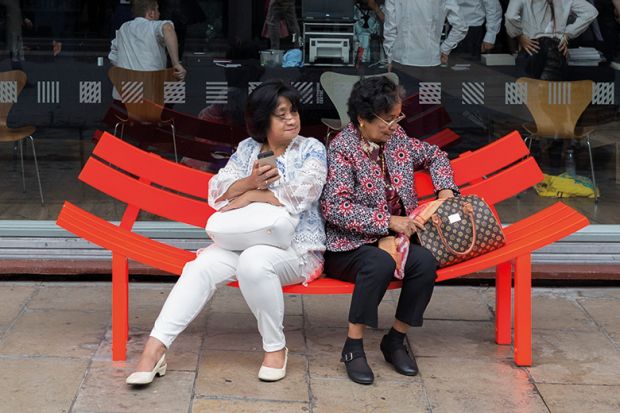Last month, the University of Reading announced that Parveen Yaqoob and Dominik Zaum would join its executive, job-sharing as the new pro vice-chancellors for research and innovation.
While job-share arrangements are not uncommon in higher education, this is thought to be the first such top-level appointment in a UK university. So, can such arrangements work in academia?
Both of the Reading professors, who start their new role on 1 August, are convinced that they can. Crucially, the pair said, it will allow them the flexibility to pursue their own research interests.
“The reason we applied for a job-share was so that we could spend 60 per cent of our time in that role and then the other 40 per cent of our time keeping our own personal research going,” Professor Yaqoob told Times Higher Education.
As she and Professor Zaum both have young children, the arrangement will also ensure a healthy work-life balance, she added.
And another bonus, she feels, is that they belong to different faculties – she heads the School of Chemistry, Food and Pharmacy, while Professor Zaum is professor of governance, conflict and security, as well as research dean for prosperity and resilience.
“There’s no point having a job-share involving two people who are very similar. I think that it’s fantastic to have two people with such different areas of expertise, experience and outlook because it gives a broader view of the research that the university is meant to be representing,” Professor Yaqoob said.
Neither professor, however, will restrict themselves to the areas with which they are most familiar.
“We are making an explicit attempt to enable multidisciplinary working so that we can both actually develop a good understanding of what happens on both sides,” Professor Zaum said.
While they are enthusiastic about the undertaking, Professor Yaqoob admitted that she initially had doubts.
“I was worried at first that people would see this as saying: ‘She didn’t feel that she could do it herself because she’s female.’ But people seem so positive about it that no one seems to be implying that,” she said.
Together, the professors hope to send an important message to the rest of the higher education sector, in terms of not just promoting flexible working but also gender equality.
“There’s a big responsibility for Dominik and myself to make it work, because it could lead the way for other board-level positions to be offered as a job-share,” Professor Yaqoob said.
Search our global database for job-sharing roles and other university vacancies
Other academics who have job-shared extol the benefits of the arrangement. Biologists Mary Allen and her husband Mark Kuhlmann split a professorship of biology at Hartwick College in Oneonta, New York for 17 years, with each performing three-quarters of a full-time role.
“For us, there were two main benefits,” Professor Allen, who now works full-time at the institution, told THE. “One was that it allowed us to be able to work in the same geographical area. It also had the added benefit of allowing us to do more of our own home care for our kids, and to balance that with our work.”
Because they were both in the same department, scheduling classes around their family commitments was relatively easy.
“Our teaching load was low enough to be able to arrange [it so] that neither one of us was expected to be in the classroom at the same time,” said Professor Kuhlmann, who still maintains three-quarters of a full-time role.
“So, for one particular semester, I might have morning classes on Monday, Wednesday and Friday – while Mary would have afternoon classes on Monday, Wednesday and Friday. And if we had labs, we would make sure they couldn’t conflict.”
When the college initially approached the couple about sharing a job, Professor Allen was adamant that they should be evaluated separately.
“For personal reasons, we didn’t want that added stress [of joint evaluation] on our relationship,” she said. “If the evaluation was poor, was it your fault or their fault? I didn’t want to have to think about whether he was doing his job [well] or not.”
Although the couple’s job-sharing experience was positive overall, Professor Allen admitted that they each ended up doing more than three-quarters of a full-time role because of their research responsibilities and time spent on committees and other duties.
However, she added: “It did give us the ability to say no if we felt [the percentage] was tipping over.”
And there’s another downside, according to her husband. “The sacrifice is that we didn’t get paid as much,” Professor Kuhlmann said. “But we’re very grateful, and if we could go back, we would do it again and make the same choices.”
Register to continue
Why register?
- Registration is free and only takes a moment
- Once registered, you can read 3 articles a month
- Sign up for our newsletter
Subscribe
Or subscribe for unlimited access to:
- Unlimited access to news, views, insights & reviews
- Digital editions
- Digital access to THE’s university and college rankings analysis
Already registered or a current subscriber? Login








